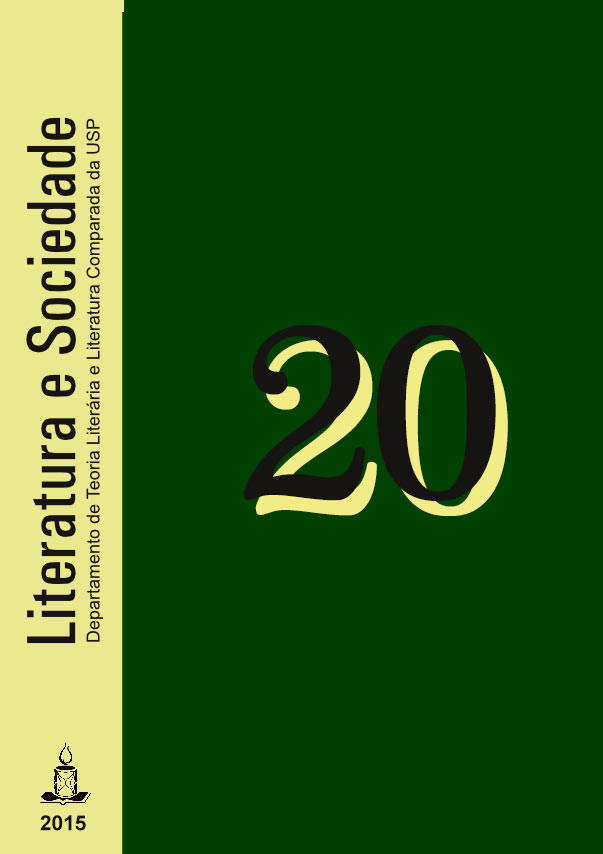Língua de onça: onomatopeia e legibilidade em “Meu tio o Iauaretê”, de Guimarães Rosa
DOI:
https://doi.org/10.11606/issn.2237-1184.v0i20p107-114Keywords:
“Meu tio o Iauaretê”, João Guimarães Rosa, legibility and interpretation, etimology, onomatopoeia.Abstract
This essay starts from a correlation established by Gianfranco Contini and Giorgio Agamben in the poetry of Giovanni Pascoli between the use of a “dead language” and of onomatopoeic words. This correlation is taken as a departing point for addressing the problem of legibility in the short story “Meu tio Iauaretê”. It is argued that the indistinc- tion of Tupi and onomatopoeic speech in the narrator’s animal language is an extreme experiment to be read within the larger frame of Guimarães Rosa’s poetics of illegibility.
Downloads
Download data is not yet available.
Downloads
Published
2015-06-18
Issue
Section
Dossiê
How to Cite
Rowland, C. (2015). Língua de onça: onomatopeia e legibilidade em “Meu tio o Iauaretê”, de Guimarães Rosa. Literatura E Sociedade, 20(20), 107-114. https://doi.org/10.11606/issn.2237-1184.v0i20p107-114


